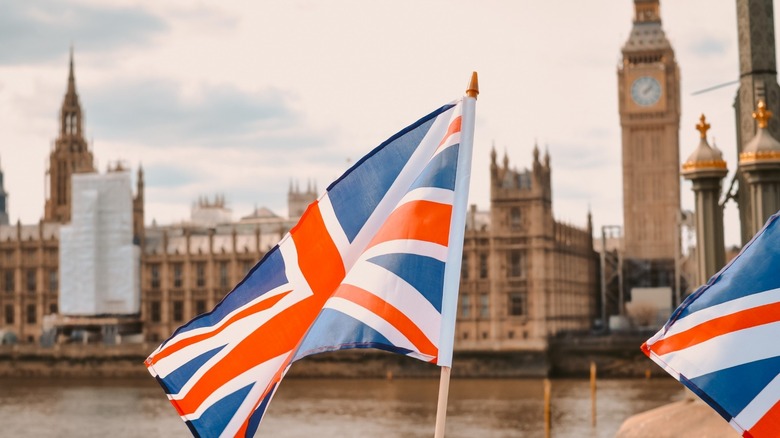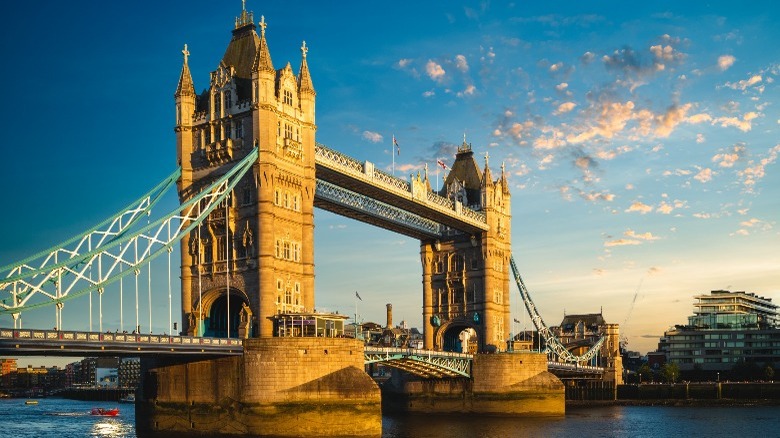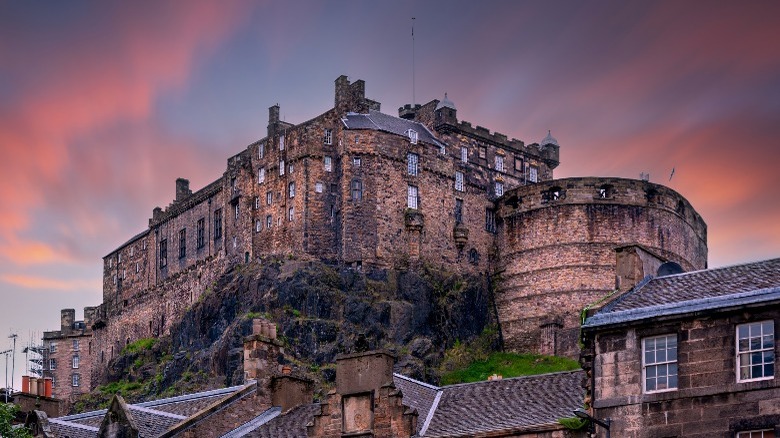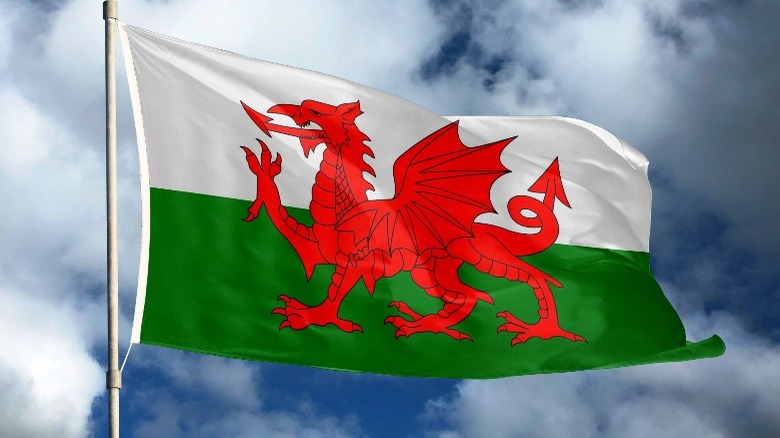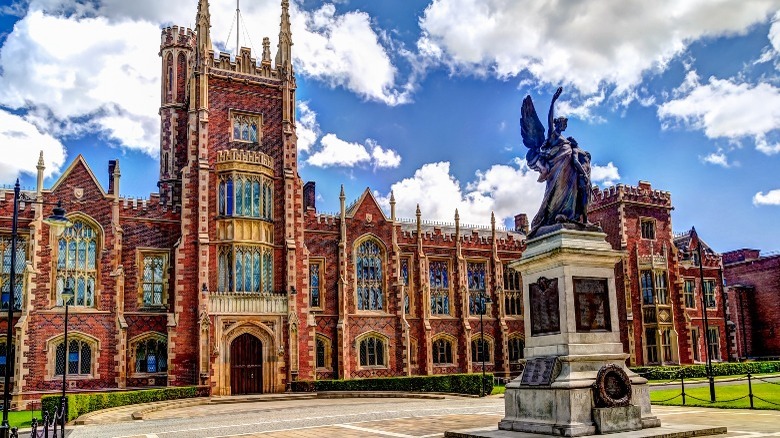These Are The Nations That Make Up The United Kingdom
The United Kingdom of Great Britain has roots that go back to ancient times despite only being united in modern times. This block of unified nations is located on two different islands off the northwest coast of mainland Europe. The origins of the United Kingdom itself can be traced back to the original Celtic kingdoms that inhabited these islands back in the 10th century (per Britannica).
Anglo-Saxon King Athelstan was the leader who unified previously separated kingdoms in England under one ruler. He then proceeded to conquer more Celtic kingdoms and thus expanded the reach of his domain across the islands. It was not until the 16th century that the kingdoms once brought together under an ancient king began to unite as the countries that we know them as today. In the 21st century, there are now four established countries that make up the United Kingdom, which has now become a dominating world power.
England
According to World Atlas, England is the largest country in the United Kingdom and is home to about 80% of the U.K.'s population. England has generally been the most dominant of all the countries in this commonwealth when it comes to culture, language, and politics. This has been true for centuries and is still the case today.
England first officially joined with the country we know today we know as Wales in 1536 through the Act of Union. England ceased to exist as a purely independent entity following the death of Queen Elizabeth I in 1603, as it resulted in the crown of England passing to James IV of Scotland, known as the Union of Crowns. According to History, King James IV took the additional name of King James I of England — yet while Scotland and England shared a king, they had separate parliaments. The nations fully united in 1707 under Queen Anne and became known as Great Britain.
England continued to show its power when it came to defending and also expanding its territories. Per Brittanica, Ireland was under English rule as far back as the 17th century, but the Act of Union of 1800 solidified the union until parts of Ireland rebelled and won their autonomy in 1922. Over the centuries, England became a dominant naval power and eventually built a large colonial empire. As of September 2022, the country still carries the bulk of the U.K.'s economic power and money and has a new king whose seat of power is still in London.
Scotland
Scotland is the second largest of the countries that make up the United Kingdom. It is located in the northernmost part of the island of Great Britain. According to Britannica, This nation's history dates back to the 5th century with the arrival of Celts from Ireland, who settled there. On multiple occasions, its neighbor to the south, England, attempted to conquer the Scots but failed, (per World Atlas). The two countries were finally reunited under James VI, who was the first king of both countries.
In the 19th century, industrialization took Scotland by storm and it became known for its shipbuilding, steel production, and ironworking. At the end of the 20th century, Scotland managed to regain some of its independence from England, and re-established its parliament.
Also in the 1990s, Scotland saw a boom in tourism, due to the release of the legendary film, "Braveheart", (per Scottish Field). Even more recently the Scottish tourism industry saw another huge increase in folks wanting to visit the Scottish highlands with the release of Starz's hit tv series, Outlander. With a solid economy and fascinating history, it is not lost on the Scots that they have been ruled by the British crown for centuries now. Reuters reports there are many who are no longer content with this and there is now a growing movement to make Scotland an independent country once again.
Wales
Located on the western side of Great Britain is the country of Wales. Though it is a small nation, it has a rich and diverse history and was an important political and cultural center for the Celts of Europe. After centuries of fighting with the English (Saxons), the Britons who resided in what is modern-day Wales were eventually conquered and joined the kingdom of England in 1536. This laid the foundation for the future union of the United Kingdom.
Despite being a colony of England for hundreds of years, by the 18th century, Wales had become a hub of industrialization. It was at one point one of the most important industrial centers in the world, (per World Atlas). Since the 20th century, there has been a movement grounded in Welsh nationalism which has since led to the recognition of Wales as a nation, the teaching of the Welsh language, and even an official flag of Wales. They establish their own parliament in 1999. Today, World Atlas says some Welsch citizens call for complete independence from England.
Northern Ireland
Northern Ireland is the smallest part of the United Kingdom but was once a crossroads for many different types of people, per Britannica. It is located on the northeastern side of the island of Ireland and is a separate country from the nation of Ireland. Due to its history of being a common entry point for the island of Ireland, the country of Northern Ireland has a diverse culture and complex history.
Northern Ireland as we know it today was formed in 1921 in response to the Irish movement for independence, (per World Atlas). Six counties in Northern Ireland remained part of the United Kingdom, while the rest of the island nation did not. This seemed to be a solid solution to the conflict at the time, but during the 1960s violence broke out between the two sides. They were essentially divided along religious lines, with the Irish being devout Catholics, and Northern Ireland adhering to Protestant doctrine. Since 1994 there has been relative peace between the two sides due to a tentative agreement that was reached. Today Northern Ireland is still in a precarious position with its neighbors in Ireland due to the U.K. voting to leave the European Union in 2016, but as of now have managed to maintain stable relations despite their differences.
